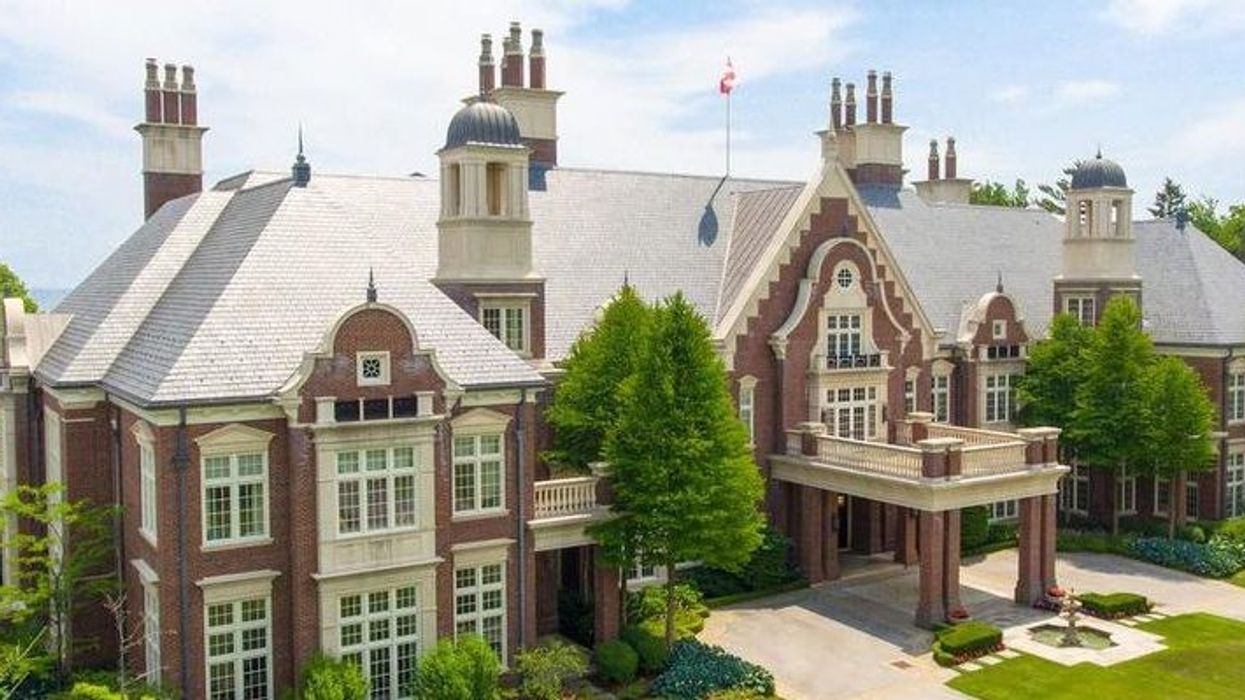It should come as no surprise, but Toronto and Vancouver's luxury home markets led the country in top-tier real estate performance in both home prices and sales activity in 2019, according to a new report from Sotheby's International Realty Canada.
Canada's largest city was able to rally at the end of 2019 following a slow start to the year, thanks in large part to strong population and economic growth and a robust labour market, according to the report, which was released Wednesday.
READ: The Average Home Price in the GTA Crept Closer to $1M in 2019
This news comes after Toronto city council proposed implementing a 3% tax on homes valued at $3 million or more. Currently, the top tax is 2.5% for homes valued at $2 million or more.
This proposed tax would be similar to what's already been implemented in Vancouver, which Sotheby's International Realty Canada CEO, Don Kottick, says has caused unintentional negative consequences for homebuyers.
"It stalled activity in the market for luxury housing over $3 million, therefore many people delayed decisions to move up or out and their homes did not come on the market. This trickled across many segments of the market, such as for attached homes which are popular with young families and downsizers, and contributed to a lack of supply and housing options," said Kottick.
Kottick says there is often the assumption that taxes are the only way to generate government income and to solve housing affordability challenges.
However, he believes governments should be looking at implementing more sustainable solutions that don't have the unintended negative consequences that often come with heavy taxation.
"The housing market is a continuum; when you impact one area of the spectrum, it reverberates throughout the entire spectrum," said Kottick.
"The introduction of the luxury tax in Vancouver had unintended negative consequences for many homebuyers, not just the affluent. It stalled activity in the market for luxury housing over $3 million, therefore many people delayed decisions to move up or out and their homes did not come on the market."
Kottick suggests this trickled across many segments of the market, including attached homes, which are popular with young families and downsizers, and contributed to a lack of supply and housing options.
READ: The Bridle Path’s Celebrity History Of Luxury Real Estate
Sotheby's "Top-Tier Year End Real Estate Report" found that demand for premier real estate in Toronto was still strong relative to the number of available listings in 2019. This ended up creating tighter market conditions and sparking multiple offer scenarios in the region.
Overall, active sellers’ market conditions prevailed across all top-tier housing types, particularly within the City of Toronto, Sotheby's found.
The report showed that sales in the Greater Toronto Area (GTA) of homes priced over $1 million, including condominiums, attached and single-family homes, experienced a 23% year-over-year increase in sales activity with 17,532 homes sold in 2019. Moreover, the City of Toronto saw sales of over $1 million increase by 20%, while sales of homes over $4 million increased by 5% in 2019.
The report said that according to the Conference Board of Canada, Toronto is projected to follow its 2% increase in GDP in 2019 with a 2.2% growth rate in 2020. Furthermore, population gains are expected to place "unrelenting pressure" on conventional and top-tier housing demand as Ontario recorded one of its highest population growth rates in 30 years in 2018 and 2019. This was due to Toronto acting as a key gateway for newcomers drawn to a city ranked seventh in the Economist Intelligence Unit’s Global Liveability Index in 2019.
These influences, coupled with continued international and local investor interest, are expected to propel the GTA’s top-tier real estate market to new levels of activity and pricing into the first quarter of 2020, according to Sotheby's.
READ: Demand Increases For Luxury, GTA-Based Properties
"Toronto is a global city, we are now an economic and technology hub attracting world-class tech companies such as Google, Facebook, Airbnb, just to name a few. To attract world-class opportunities that create jobs, we need to have world-class employees, and these employees do their due diligence reviewing the cost of living and the quality of life before making their decisions to relocate," said Kottick.
He added that global cities like New York are currently suffering a situation where taxes and high costs of living are resulting in a "brain drain", and that "we need to remain competitive in Toronto and ensure that we develop and implement stronger solutions."
And a permanent solution for Toronto's housing market won't be the proposed luxury home tax, says Kottick.
"Taxes can be like crack to governments: the land transfer tax was only meant to be a temporary tax and is now permanent as the government is dependent upon it. This proposed luxury home tax poses the same risk of being a permanent tax without offering a permanent solution."
As the report clearly points out, there is a solid demand for luxury real estate in Toronto, and this is driven by several strong and underlying forces, including the healthy economy and growing population base.
"A luxury tax does not change these factors. We have also seen in other markets like Vancouver, that taxes do not solve the burning challenge of housing affordability or address housing supply," said Kottick, adding, "instead, it casts some temporary uncertainty into the market and adds a significant cost burden in a city where people of all walks of life are bearing increased costs of living."
"Lack of housing supply is our main problem in several of Canada's largest cities. It’s crucial that Toronto thoughtfully address the supply side of our housing challenges as it comes to residential development, as well as purpose-built rentals," said Kottick.
He added that Toronto needs to address and streamline its approval processes in order to address supply at all points of the housing continuum.





















